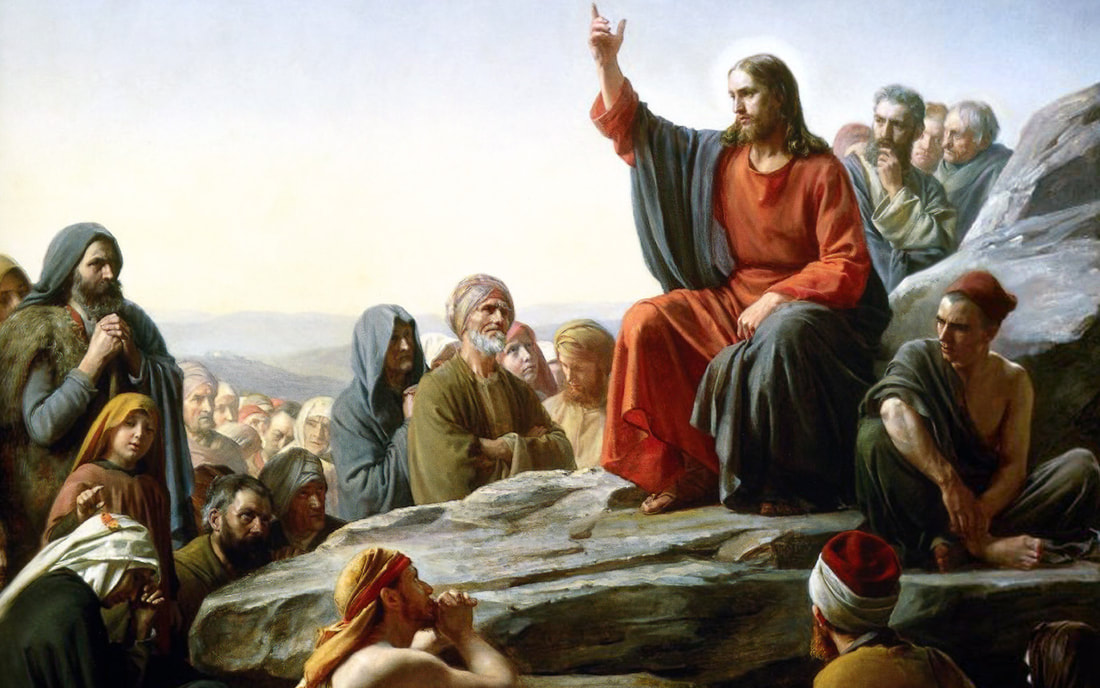|
5/1/2019 0 Comments Article V: The ResurrectionHow to Choose the Best Explanation of the FactsIn the previous posts, we looked at the three historical facts about Jesus that virtually all historical scholars agree on the empty tomb, the post-mortem appearances, and the origin of Christianity. The facts are neutral and do not explain themselves, so we need to know which theory best explains the facts. There are several theories proposed to try to explain the facts, and we will look at those in the next few articles.
In this article, we will first explore how historians generally decide between alternative theories. In other words, how do we determine which theory is best? Generally, historians lean on five criteria to assess the different theories and determine the best one. These will give us the ability to show skeptics that we have taken the facts applied these criteria to the possible theories to determine what makes the most sense of the evidence. The first criterion is the explanatory scope-the best theory should explain most or all of the facts. For example, if Explanation A explains two of the facts, and Explanation B explains all three of the facts, then by this criterion, Explanation B would be the better option. The second criterion is explanatory power-the best explanation should forcefully explain the facts, and not in a weak or cursory way. A good explanation, in other words, should make you think, "Yes, that's it!" and not, "Well, I guess I can maybe see how that might explain the facts." That is the difference between explanatory power and weakness. The third criterion is plausibility-the best explanation should be plausible, given the existing background information. It should make sense and not seem far-fetched and unlikely. For instance, I am standing in the backyard hitting golf balls and Msgr. Deutsch notices that there is a golf-ball sized hole in his bedroom window. It would be plausible for him to believe that I had hit an errant shot through his window. What is not plausible is that someone in Belvidere hit a ball from their backyard through his window. Both explain the golf-ball sized hole in the window, but the Belvidere theory is not at all plausible. But if he asks it probably came from Belvidere. The fourth criterion is how contrived the explanation is. The best explanation should not require us to adopt many or any new beliefs for which we have no evidence. Suppose we were trying to explain how the pyramids were built. There are numerous theories some suggest they were constructed using an innovative system of ramps, levers, and pulleys. Others suggest aliens made them. The alien explanation is an example of a contrived explanation. It requires us to accept new unfounded beliefs for which we have no evidence (aliens), and is, therefore, a contrived explanation and less likely correct. The fifth and final criterion is coherence with accepted beliefs. The best explanation will conflict with fewer accepted beliefs than other explanations. We have many accepted beliefs from the law of physics to the facts of history. The best explanation usually aligns with these. If, for instance, a theory forces us to overturn the law of gravity or that George Washington was the first President of the United States, then it is a strike against that theory. The explanation that does best on each of these criteria is usually the one that explains the full scope of facts, has greater explanatory power, is most plausible, is not contrived, and is in line with accepted beliefs. An important caveat is that sometimes the best explanations do not fair well on every criterion. For example, some revolutionary scientific theories-Einstein's general theory of relativity. When he proposed it the theory did not meet the last criterion of coherence of accepted beliefs. However, it did so well on the other four criteria that it was impossible to dismiss. In the next article, we will take the three historical facts of the empty tomb, the post-mortem appearances, and the origin of Christianity and the five most common explanations given for those facts (conspiracy theory, apparent death theory, displaced body theory, hallucination theory, and the Resurrection theory) and using these criteria determine the best one. Resources: Bradon Vogt, www.claritasu.com, episodes on the Resurrection.
0 Comments
|
AuthorI am a Catholic priest writing about Catholic things. Archives
May 2019
CategoriesAll Advent Almsgiving Ash Wednesday Catholic Charity Christmas Confession Discipleship Divine Mercy Eternal Life Explaining Facts Faith God Greatest Story History Holiness Holy Mass Hope Jacques Philippe Jesus Kingdom Of God Lent Lord Love Lust Nativity Of The Lord O Antiphons Pope Benedict XVI Prayer Resurrection Of Jesus Spiritual Life St. Faustina St. John Paul II St. Thomas Aquinas Temptations Temptations Of Jesus Trust Year Of Mercy |

 RSS Feed
RSS Feed